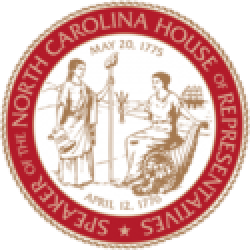Raleigh, N.C. – The North Carolina Farm Act of 2018 was passed into law Wednesday following an override of Gov. Roy Cooper’s veto by a bipartisan 74-45 vote of the state House of Representatives.
Senate Bill 711 NC Farm Act of 2018 contains crucial policy reforms for North Carolina’s farming communities, including protections from punitive damages in a private nuisance action where the agricultural or forestry operation has not been subject to a criminal conviction or civil enforcement action.
Agriculture is the largest economic driver in North Carolina, producing an estimated $80 billion annual impact on the state’s private sector.
“Agriculture is a key economic driver in our state, but farming families’ culture of hard work and personal responsibility is really the heart of North Carolina’s greatest tradition,” state House Speaker Tim Moore (R-Cleveland) said at a rally of farmers on Monday.
“Farmers have been a key part of seeing this state built. From sun up to sun down, it’s family farmers who feed this state and feed this country. As I drive across this state and see the farms, and crops, and animals, I see hardworking families who care about this state, and care about this country.”
The legislation directs the Department of Revenue to publish a depreciation schedule for farm equipment and make the schedule electronically available on its website. Appraisers would be required to use the depreciation schedule in a cost approach method, assisting farmers with certainty of the financial valuation of their assets.
The NC Farm Act of 2018 further requires the Food and Drug Protection Division of the Department of Agriculture to immediately develop an enforcement plan for the federal government’s standard of identify for milk, prohibiting the sale of plant-based products labeled as milk.
The legislation reforms regulations relating to fruit and vegetable growers and allows the state Department of Agriculture to sell merchandise related to its Got To Be NC Agriculture marketing promotion.
“I’m very well pleased that the majority of the House on a bipartisan vote overrode the misguided veto of Governor Cooper,” said Rep. Jimmy Dixon (R-Duplin), chairman of the House Agriculture Committee.
“Going forward, our farmers can now concentrate on feeding a hungry world and continuing to produce two where there was but one.”
The Agriculture and Forestry Awareness Study Commission is directed by the legislation to study unused rights-of-way and utility easements and other property tax exclusions.
The NC Farm Act of 2018 also directs counties to require land records include some form of reasonable notice for title searchers that a tract is located within one half-mile of a poultry, swine, or dairy qualifying farm.
It would allow the dispensing of raw milk and raw milk products to independent or partial owners of lactating animals for their personal use or consumption.
The legislation provides no nuisance action may be filed against an agricultural or forestry operation unless certain conditions apply, including proximity to the facility and timeliness of the civil action.
“The Farm Act gives our farmers the certainty and protections they need to continue feeding the public and driving North Carolina’s economy,” said House Majority Leader John Bell (R-Wayne).
“Farmers are the backbone of our state and I am proud to stand with them.”


